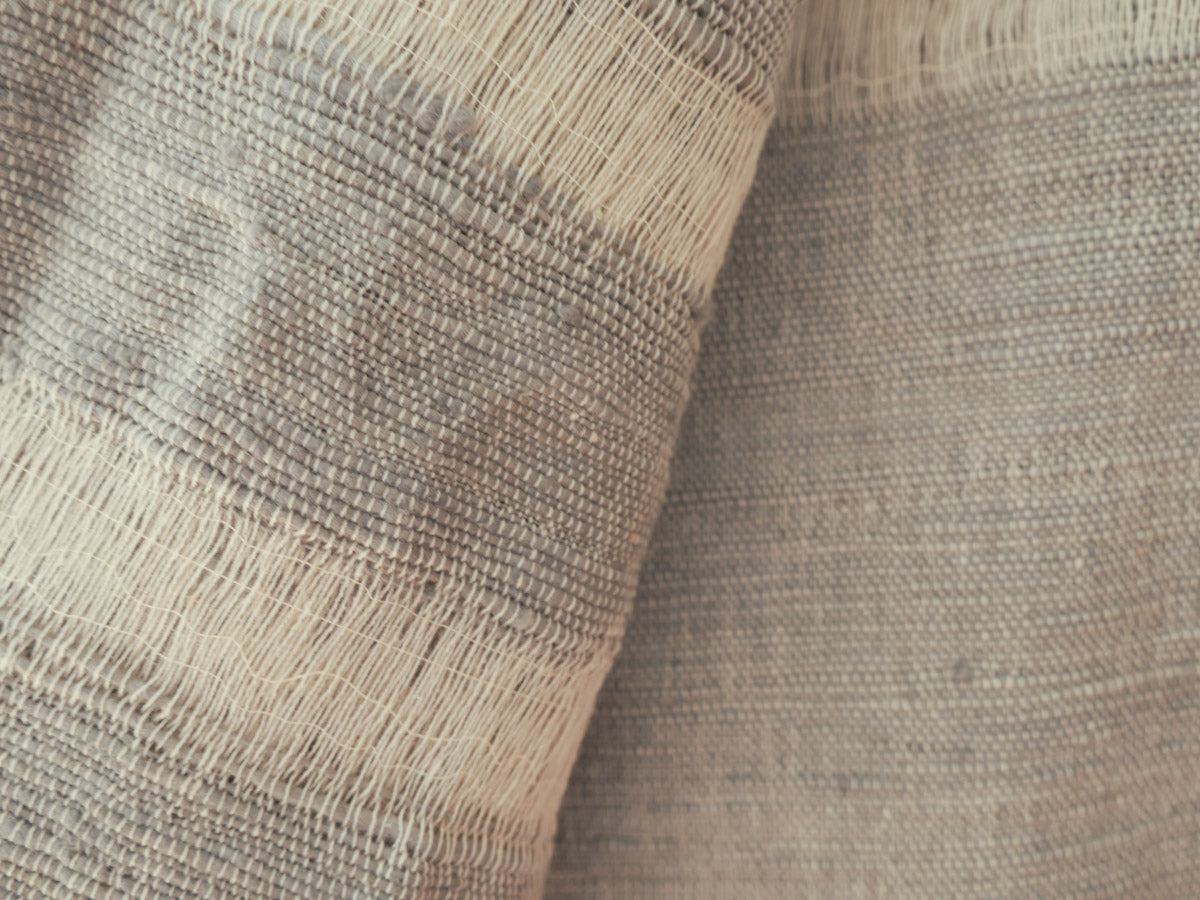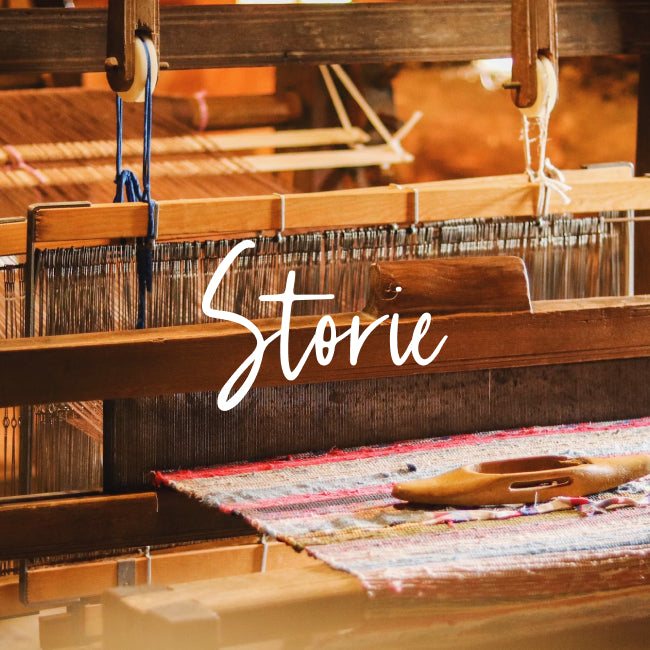CRAFTSTORY 6#HANDLOOM BANGLADESH
You can immediately identify a hand loomed cloth, if you are looking. There is a texture and richness to it, very different to machine loomed textiles.

This cloth is made using hand spun recycled cotton, in the workshops of Panchagarh, Bangladesh. There is a unique sensation when you feel it, you can see and sense a human touch in the making of it.
These strong but delicate weaves are made by a social enterprise in the north of Bangladesh. The workshop was set up by Mohammad Khan in 2002 to support rural craftspeople from an area well known for this weaving, but who were either entirely reliant on seasonal agriculture, or were unemployed, “ Before I started this business, I had worked in the region and was familiar with it. It’s a very poor area, which is why I chose it, to create jobs and so that people could work close to their home . Now it is much better, they get much more work and there has been much improvement in the local economy. Agriculture workers have no work most of the year, when they have no work, then they can’t provide food and other things for their families”

Unemployment in the rural areas in Bangladesh is very high, forcing many to migrate to larger cities, leaving their families behind. The creation of local jobs is incredibly important, “Especially for women, it is important to create jobs close to home. This way the rural women can provide an additional income without having to leave their families. The craftswomen are allowed to work in the modest workshop or from their homes on their own time schedule. “ According to Patricia Khouw, whose company works with Mohammad.

A loom needs 3 to 5 people to operate it, depending on the complexity of the design. The workshop contains 34 handlooms (or Tant looms), and today the business employs around 150 people in 2 different locations, almost 50% of whom are women. Thanks to the revival of this craft, people in the village can now generate decent income throughout the year.

On top of the social aspect of this company, they’ve also focused on making their products as sustainable as possible, focusing on recycled materials. This cloth uses left overs fibres from cotton spinning mills and garment factories in the region are used to make a yarn. It’s difficult buying good quality cotton waste, so Mohammad sources this waste yarn carefully.
Finding high quality, sustainable raw materials isn’t the only challenge, Mohammad says his biggest problem is marketing, as most consumers just don’t understand the value of hand loomed products, even in Bangladesh, “hand loom products are facing much competition from power loom products, and there are not many new people coming in to the sector. New workers are not interested in learning hand loom techniques.”.

Again and again, we hear the story of generations-old craft techniques that are very much at risk of being lost “ in the 1990s there were approximately 300,000 hand looms in operation in Bangladesh. They estimate that around 110,000 are being used today.”, when I ask Mohammed what we can do to save the skills he says “it’s a problem with marketing”. He says that we need to find away to tell the story of this precious cultural heritage, and explain to people why we must treasure it in order to keep it alive.
A great deal of work has already been done by socially responsible business leaders like Mohammed, but there is much more still to do, and in order for good businesses to survive and hopefully thrive they need the support of conscientious consumers who care about who makes the things they buy, and how they are made.

We've just got back from visiting the workshop where the products are finished in Dhaka, it's a real honour and pleasure working with our partners there. Storie is sourcing from these great producers because what they do is beautiful, it's socially responsible, it's ecologically sustainable, buying it helps to preserve an important cultural heritage and financially empower people in rural communities where there is high unemployment.
See the Bangladesh Handloom collection here














